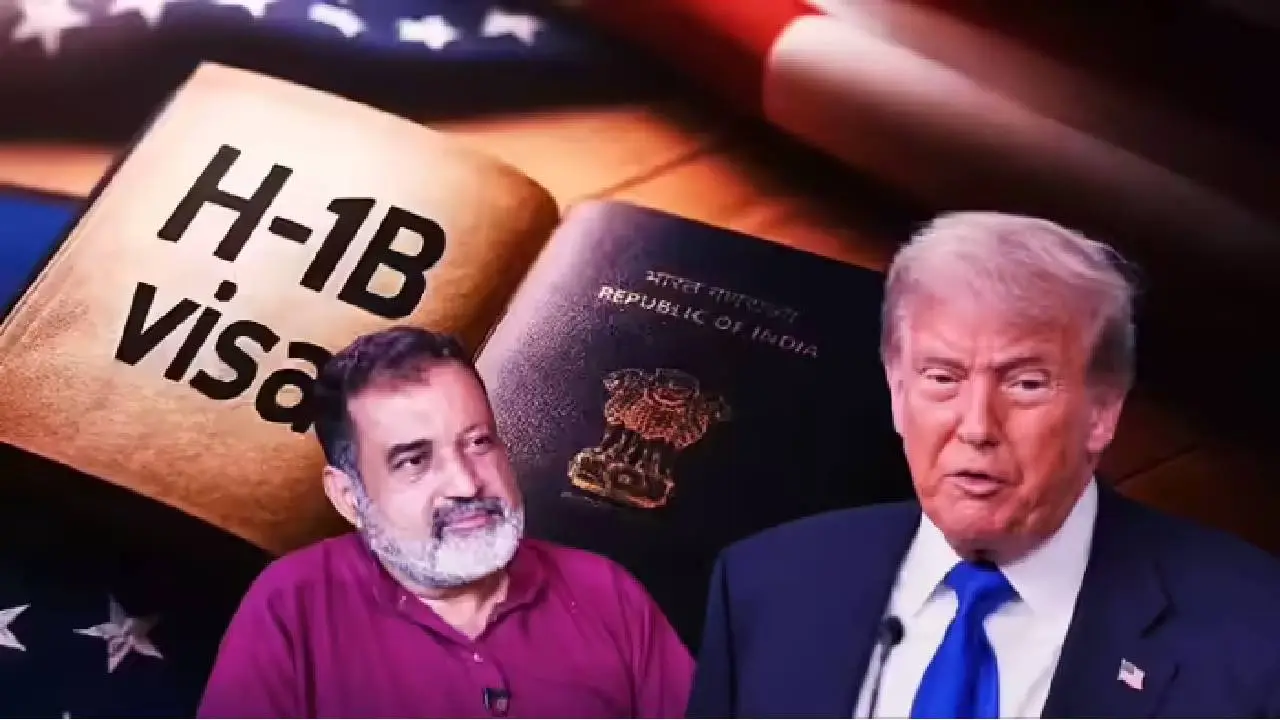
President Donald Trump (Credit:Top Indian News)
International News: Trump raises H-1B visa fee President Donald Trump has shocked the global tech world by announcing a steep hike in H-1B visa fees to $100,000. The new rule will not take effect immediately but will apply from next year. Industry experts say this move could be a blunder. Mohandas Pai, a respected Indian business leader, argues that the hike will not impact Indian workers right away but could weaken America’s own economy over time.
Pai explained that the raised fees apply only to new applications starting next year. This means the current lottery system, expected in April, will proceed without changes. For the next 12 months, there will be no direct financial burden on existing applicants. According to him, people are panicking without reason because the rule has not yet started. By the time it does, companies may already prepare alternative strategies.
Pai highlighted that nearly 300,000 H-1B visa holders are already in the United States, of which about 235,000 are Indians. That is nearly 70 percent of the total. These workers are safe under the old rules and can renew their visas every three years for up to 12 years. They will continue paying the same fees without any increase. Therefore, the immediate effect of Trump’s announcement on Indian professionals is practically zero.
Pai dismissed the narrative that H-1B workers are cheap labor. He said Indian IT firms already pay a minimum salary of $100,000 to H-1B employees. When benefits like social security, medical insurance, and travel are added, the cost rises to $120,000. Companies then charge clients between $150,000 and $200,000. This clearly shows that Indian professionals are highly skilled and not underpaid. The claim of “cheap labor” taking American jobs is misleading and false.
Experts warn that if the U.S. keeps tightening rules, it will damage its own competitiveness. Critical technology projects could shift out of America to India or other countries. U.S. companies may be forced to expand investment in Global Capability Centers abroad, where Indian talent is widely available. Already, GCC growth in India has accelerated because America struggles with a shortage of skilled workers. This decision may accelerate the trend further.
Pai also raised concerns that beyond fees, the bigger danger is anti-immigrant sentiment. Rising hostility against Indian professionals could lead to racial abuse or even violent attacks. He cautioned that creating a hostile environment for skilled Indian workers would harm social harmony and weaken America’s image globally. Hate crimes or discrimination could discourage talented youth from pursuing opportunities in the United States.
Concluding his remarks, Pai emphasized that Indians in the U.S. are law-abiding, successful, and make valuable contributions to the American economy. Instead of treating India as a threat, the U.S. should strengthen ties with Indian talent. By raising visa fees excessively, Washington risks pushing high-value work out of its own borders. In the end, India could emerge as the biggest winner, while America faces talent shortages and higher costs at home.





Copyright © 2026 Top Indian News
